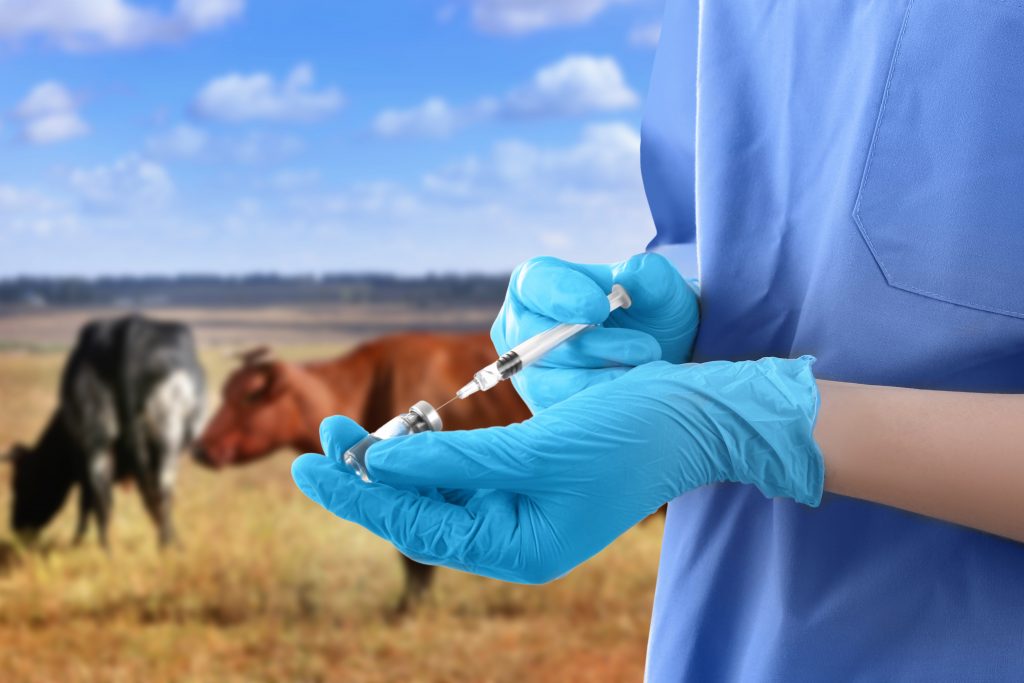
Senior Farm and Ranch Broadcaster, Ron Hays, is featuring comments from Farm Director KC Sheperd’s visit with Oklahoma State University State Extension Beef Veterinarian, Rosslyn Biggs about the upcoming regulatory changes the Food and Drug Administration (FDA) is making regarding antimicrobials.
Starting on June 11, The FDA will be changing the status of over the counter “medically important” antimicrobials used in animals to prescription only. Without a relationship with a licensed veterinarian, obtaining these antimicrobials will be much more difficult, as they have previously been accessible with no prescription.
“FDA came out with guidance about two years ago that put us all on notice that they have asked pharmaceutical companies to voluntarily transition their over-the-counter antibiotics,” Biggs said. “So, common ones we would see in the beef cattle industry would be penicillin, oxytetracycline, that sort of thing, is going to go from the feedstore shelf back under veterinary prescription.”
These over-the-counter antibiotics, Biggs said, will soon need a veterinary prescription to obtain.
“We do see a number of our feedstore-type outlets that are getting pharmacy licensed, so the convenience of it in many cases may not change, other than you are going to have a veterinary prescription, and in order to have a veterinary prescription, you have to have a veterinary client-patient relationship, and in most cases, that is going to require you to have an evaluation of an individual animal in that case or your herd,” Biggs said.
Biggs encourages producers who do not have a VCPR (Veterinarian-Client-Patient Relationship) with their veterinarian to establish one soon. This initiative for regulatory changes, Biggs said, was not veterinarian-led.
“We are seeing increasing resistance to a number of our antibiotic products, and so that is the big basis for this move,” Biggs said. “I will point out, too, it does not change anything producers are doing with their veterinary feed directives. It also is only for those antibiotics that are medically important. That particular definition is antibiotics that are used in human medicine.”
However, Biggs said other antimicrobials that are not used in human medicine such as Rumensin, would not be impacted because they are not used in human medicine.
“The relationship is really key for a number of things,” Biggs said. “Certainly, in this regard, you want to be able to have that prescribing capability and you want to have that relationship established with your veterinarian.”
Veterinarian practices already have a lot on their plates, Biggs said, so having a relationship is essential for more urgency.
“In many cases, they do not see emergency cases for non-clients,” Biggs said. “You want to prepare for the worst.”
As veterinarians are operating within the guidelines required of them, Biggs said having a mutually beneficial relationship is key.
“I want to make sure it is mutually beneficial, that we are both ending up with positive outcomes at the end of the day,” Biggs said.
For more information from the FDA on Frequently Asked Questions about this subject, click here.
The Beef Buzz is a regular feature heard on radio stations around the region on the Radio Oklahoma Ag Network and is a regular audio feature found on this website as well. Click on the LISTEN BAR for today’s show and check out our archives for older Beef Buzz shows covering the gamut of the beef cattle industry today.


















